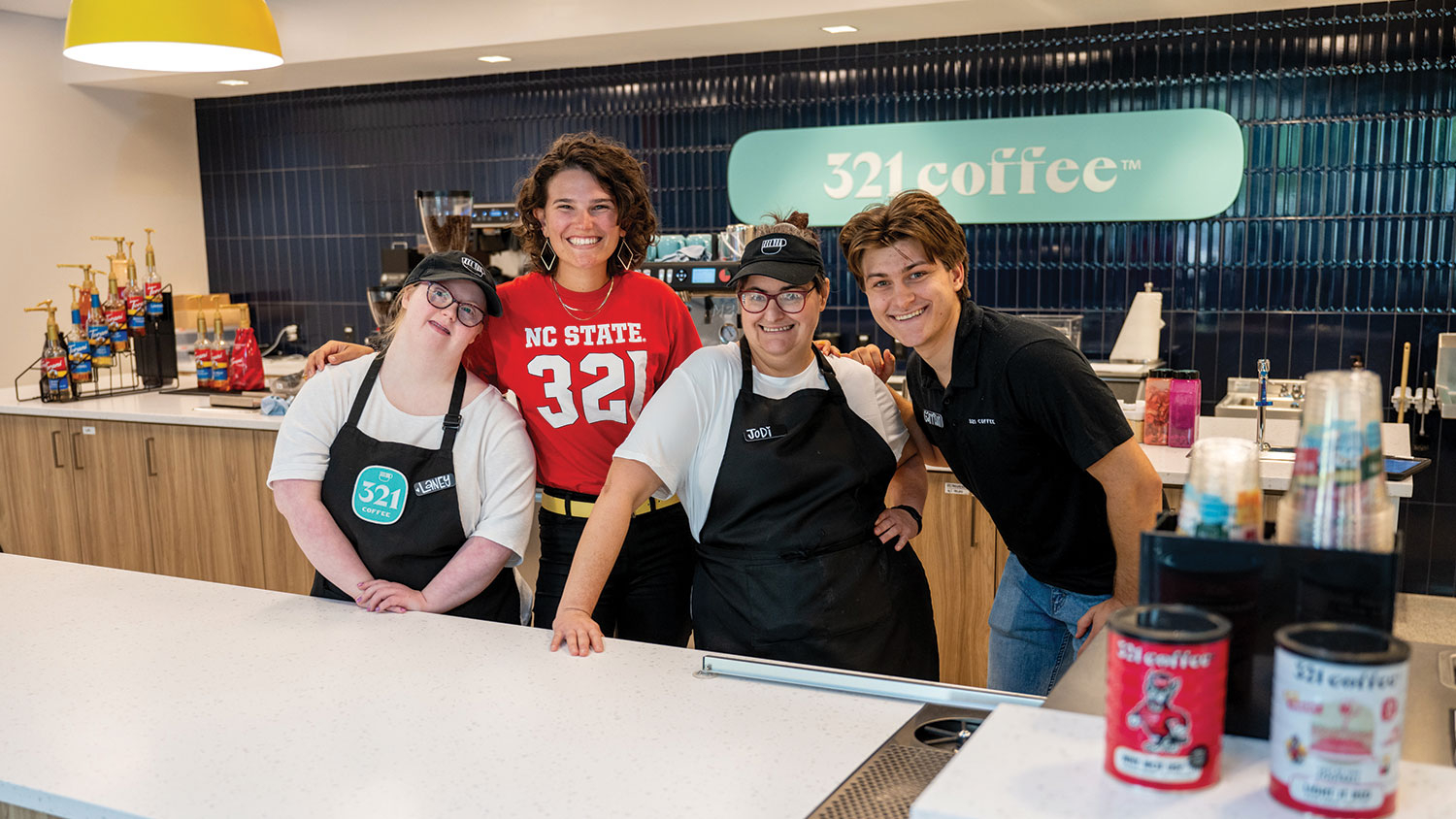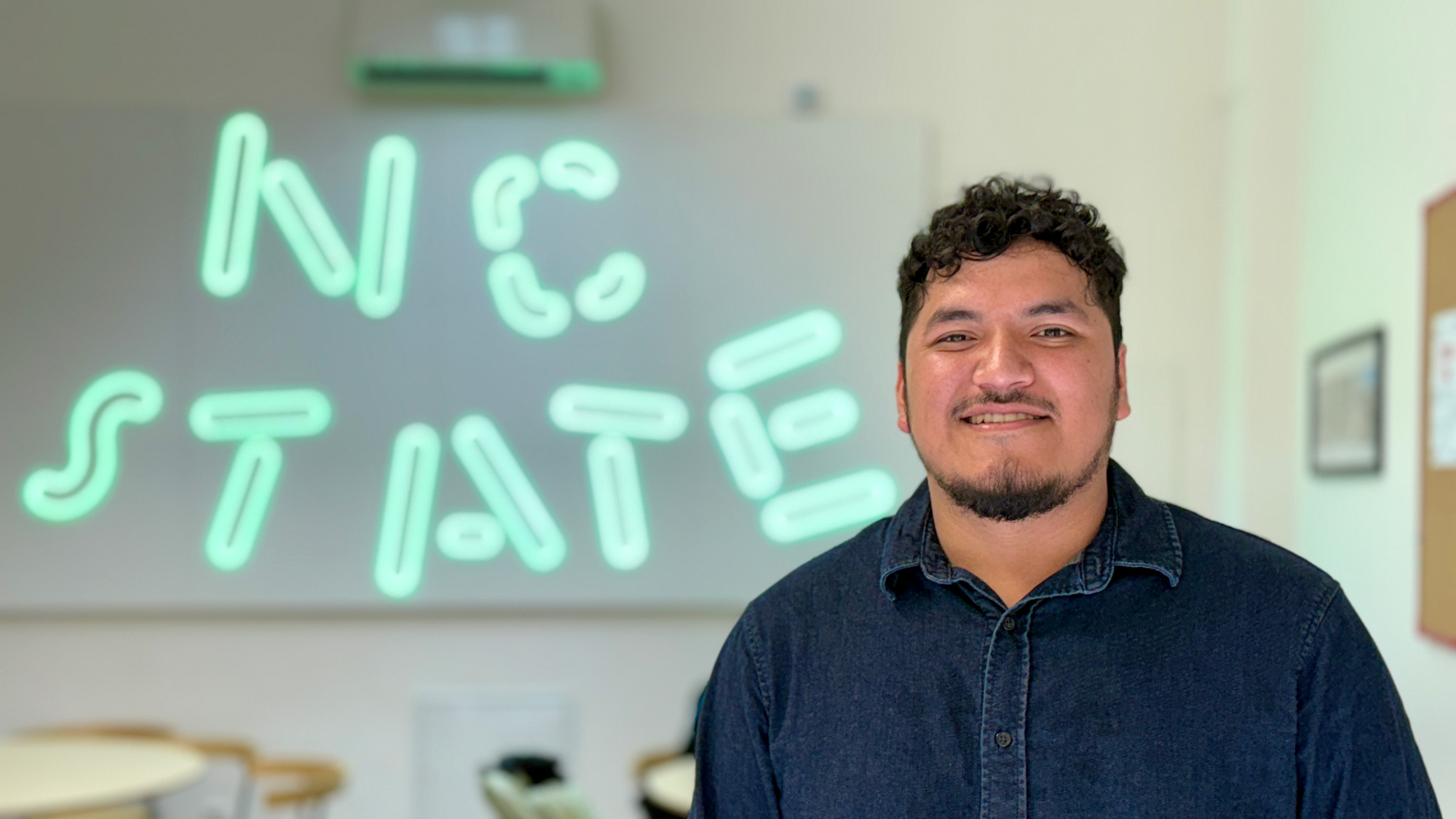Trig Innovation’s Multidisciplinary Take on Industrial Design Stems from Jenkins MBA Innovation Lab
Ty Hagler, a principal at Trig Innovation, recently spoke at an information session for the Jenkins MBA program in the NC State Poole College of Management. As a 2011 alum of the program, he was speaking both from experience his in the program and how that experience has impacted his business.
Hagler began his career as an industrial designer for Home Depot, where he said he was fortunate to work with MBA graduates on a merchandising strategy team. He said he was impressed by the MBAs’ education and acumen, and their work convinced Hagler to return to business school.
“MBAs just have a great way of asking questions to drive to the core strategic challenges at play,” Hagler said.
“In assessing my colleagues’ abilities to use critical thinking and problem-solving processes to advance our team, I perceived some gaps in my own capabilities, which inspired me to go back to school,” he said.
While Hagler continued to work and apply to graduate school, an MBA project from NC State’s Innovation Lab – part of the Jenkins MBA program’s multidisciplinary innovation management concentration – crossed his desk, and he was sold on the Jenkins program.
“The whole concept of pairing MBA students with designers and engineers appealed to me as a practical way to learn by doing, and by participating in the product development process,” Hagler said.
While in school, Hagler started “Studio Hagler,” the precursor to Trig Innovation, as a traditional industrial design company. As he progressed through the MBA program, Hagler acquired new skills and knowledge that he applied to set the company on a more innovative course.
Specifically, he said Jenkins' Innovation Management concentration, the product innovation lab and other consulting courses gave him a chance to “experiment” with innovation models in very realistic situations. This experience gave Hagler fundamentals and insight to revamp his business.
“About midway through the program, in the winter of 2011, the new brand for Trig began to take shape: A company that would shape both products – through design – and markets, not only through highly-integrated concepts like visual brand language, but also through a variety of marketing, advertising, and public relations strategies,” Hagler said.
Now, Hagler manages a multidisciplinary team of designers, writers, photographers and engineers who shape products and their potential markets through branding and design.
“In the nearly five years that I’ve been in business here in the Triangle, we’ve experienced double-digit revenue growth and increased profitability each year,” Hagler said. “We’ve honored this respect from our clients by increasing our capacity, with a highly-collaborative team.”
Trig Innovation is getting so many client requests, says Hagler, that they have to be selective in what new business they accept. “We try to be really measured in our approach to taking on new clients and new business, to ensure that quality never ebbs,” he said.
“The vision for Trig Innovation is still being put in place, but we’re making great progress,” Hagler said.
One of the key aspects to Trig’s business is its focus on clients. Hagler said they don’t limit the types of projects they take on, and treat deadlines and their clients’ satisfaction with the greatest importance. Trig is managed in such a way that “client service excellence” is, according to Hagler, their core competency.
“Trig follows the concept that businesses shouldn’t be something for everyone, but should strive to be everything for somebody. Spoken more plainly, our clients give us a wide variety of new service problems because they don’t want to bother with training other service providers in understanding their own business," he said.
“This mentality has created a nimble business model—the flow of our business goes to meet client needs as they evolve. As a result, the team at Trig has been very adaptable in delivering excellent work across a wide variety of assignments,” he said.
As Hagler’s team continues to grow and expand, he says he continually uses his MBA degree “like a language.” His experience as a Jenkins MBA student instilled core values that Hagler says are indispensable in his company and in business in general.
“The MBA inspires how we work with people, following our core values of inspiration, collaboration, pragmatism, and integrity. The MBA program demanded these values of us as students, and I continue to demand these of myself and the team I am blessed to work with at Trig,” he said.
Over the years, Hagler’s passion for entrepreneurship and innovation has grown. He cites uncertainty, and working through difficult problems, as exciting and rewarding aspects of running one’s own business in product innovation.
“Admittedly, not every day as an entrepreneur is easy,” Hagler said.
For MBAs and those interested in entrepreneurship and innovation, Hagler says that sorting through academics and new learning, and extracting practical tools, are keys to success.
“My advice is to be an intelligent consumer of information, testing each framework against pragmatic real-world application before placing it in your toolkit,” He said.
“I also think it’s very important to know what you want to do with your MBA or your business idea. That doesn’t mean rigidity, but rather having a vision in place and approaching your business and education with humility,” he said.
“The more open and humble you are, while remaining vigilant to your vision, the more you’ll learn. As a result, you’ll leave the program with a skill set that will continue to evolve, positioning you for success,” Hagler said.
Photo: Ty Hagler. Photo by Cristina Fletes-Boutté.


